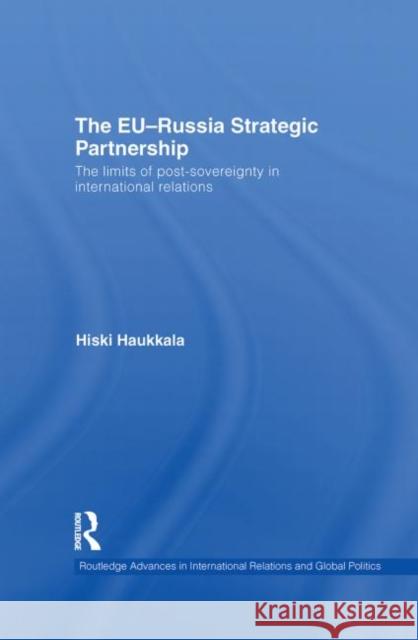The EU-Russia Strategic Partnership: The Limits of Post-Sovereignty in International Relations » książka
The EU-Russia Strategic Partnership: The Limits of Post-Sovereignty in International Relations
ISBN-13: 9780415559010 / Angielski / Twarda / 2010 / 272 str.
The EU-Russia Strategic Partnership: The Limits of Post-Sovereignty in International Relations
ISBN-13: 9780415559010 / Angielski / Twarda / 2010 / 272 str.
(netto: 699,68 VAT: 5%)
Najniższa cena z 30 dni: 705,23
ok. 16-18 dni roboczych.
Darmowa dostawa!
Why have the European Union and the Russian Federation encountered severe difficulties in developing their relationship? Why haven't the parties lived up to the initial promise and enthusiasm of the early 1990s? Beginning with the immediate aftermath of the dissolution of the Soviet Union, this book provides a practical answer to these questions whilst linking the issues to International Relations theorizing. Taking into account both the role of ideas and power, the book links the topic with three variants of mainstream theorizing: the English School, (neoliberal) institutionalism and constructivism. In the process a multi-causal framework that looks for points of convergence between different paradigms in the study of IR is developed. Providing an overview, history and explanation of the problems of institutionalization in EU-Russia relations during the post-Cold War era, this book is vital reading for students and scholars of the EU and Russia, European studies, European security and Russian foreign policy. It will also be of major interest to scholars of International Relations theory.
This book explores why, despite the initial promise and enthusiasm at the beginning of the 1990s, the European Union (EU) and the Russian Federation have encountered severe difficulties in developing their institutionalised relationship.
Beginning with the start of the relationship in the immediate aftermath of the dissolution of the Soviet Union, the book compares strategy documents and doctrines and addresses the second Chechen war, the Common European Economic Space concept and the roadmaps for the Four Common Spaces and the Northern Dimension. The author develops an alternative and multi-causal framework to examine the topic. He draws on three strands of mainstream IR theorising: English School, (neoliberal) institutionalism and constructivism and links the theoretical discussion to wider metatheoretical debates in IR and social sciences.
Providing an overview, history and explanation of EU-Russia strategic relations, this book is vital reading for students and scholars of the EU and Russia, European studies, European security and Russian foreign policy. On a theoretical level it will also be of interest to international relations scholars.











